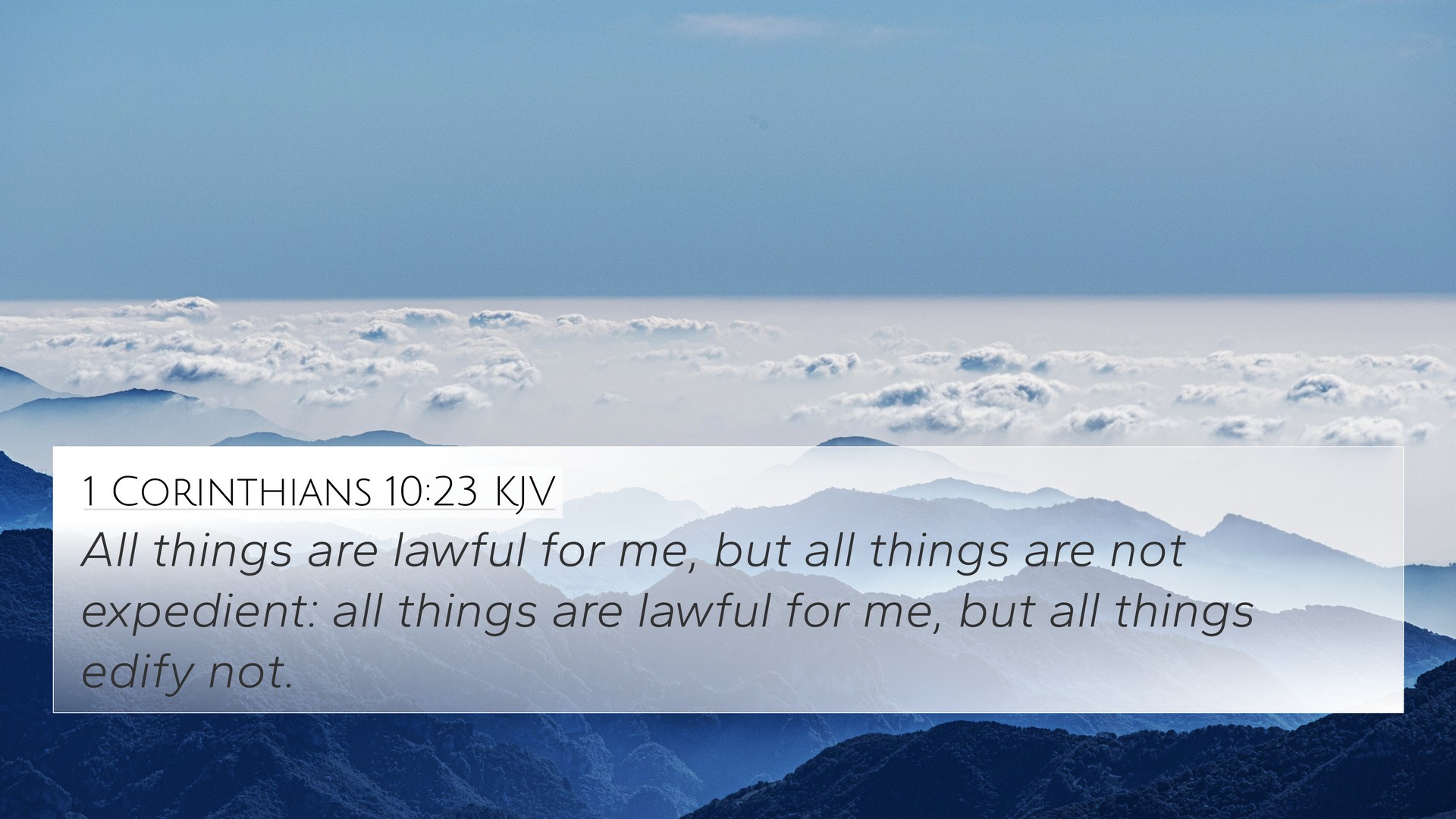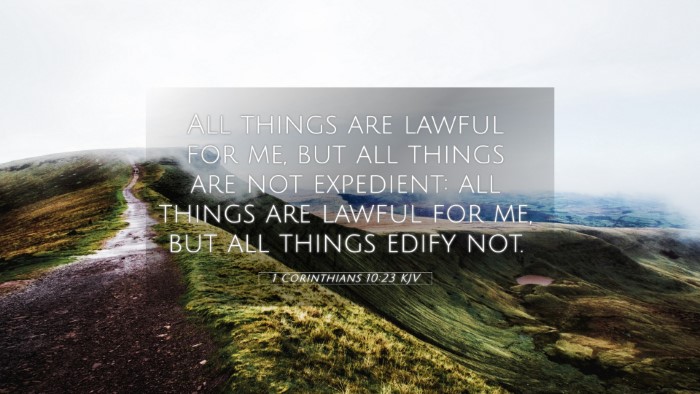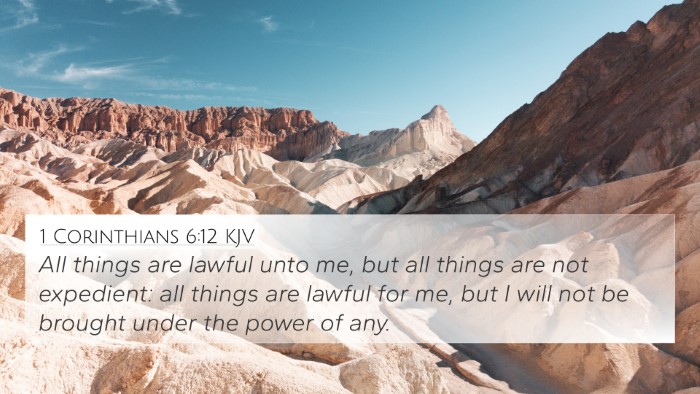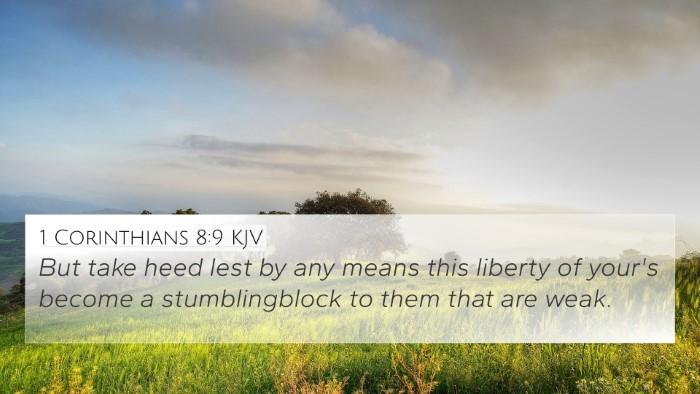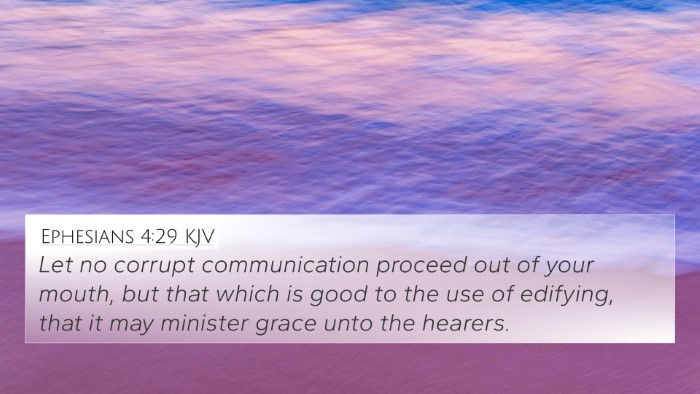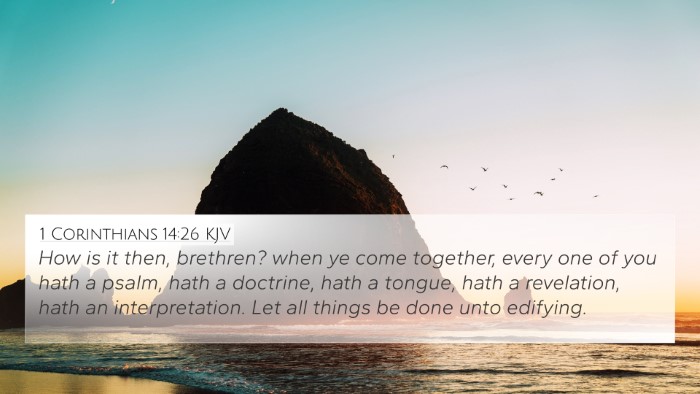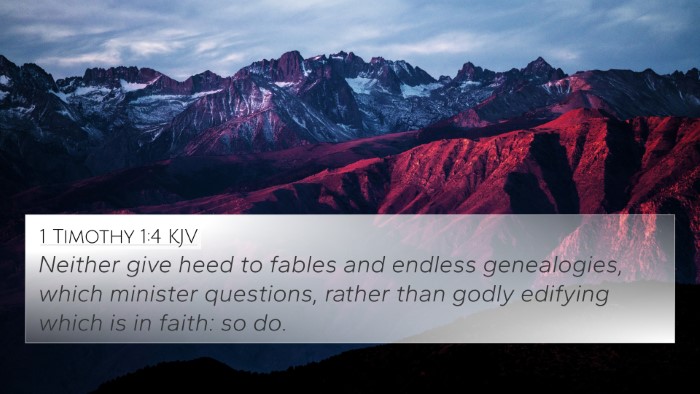Understanding 1 Corinthians 10:23
Verse: 1 Corinthians 10:23 - "All things are lawful for me, but all things are not helpful; all things are lawful for me, but all things do not edify."
Summary of Meaning
This verse emphasizes the principle of Christian liberty, stating that while believers have freedom in Christ, not all actions are beneficial or constructive to the community of faith. Paul highlights the importance of considering the impact of one’s actions on others, urging believers to prioritize edification and love over mere lawful choices.
Commentary Insights
- Matthew Henry: Henry emphasizes that Christian liberty must be exercised with wisdom and care. He notes that although certain actions may be permitted, they might not contribute positively to spiritual growth or harmony within the church. He encourages believers to seek what is beneficial for the entire community.
- Albert Barnes: Barnes stresses the necessity of discernment in exercising freedom. He explains that Christians must consider whether their choices promote individual and collective well-being. He warns against indulging in lawful acts that may lead to spiritual detriment for oneself or others.
- Adam Clarke: Clarke interprets this verse as a guideline for moral conduct. He argues that liberty in Christ does not imply a license to act without thought for others. Instead, believers should measure their actions against the standard of love, seeking that which builds up and edifies the church.
Core Principles
This verse encapsulates several key themes in Christian ethics:
- Christian Liberty: The freedom of believers in Christ, but with responsibilities.
- Edification: The importance of actions that contribute to the spiritual growth of others.
- Responsibility to Others: How one's lawful choices can impact the faith community positively or negatively.
Bible Cross-References
1 Corinthians 10:23 resonates with several other scriptures, providing a comprehensive understanding of biblical principles related to liberty and responsibility:
- Romans 14:19: "Let us therefore follow after the things which make for peace, and things wherewith one may edify another."
- 1 Corinthians 8:9: "But take heed lest by any means this liberty of yours become a stumbling block to them that are weak."
- Galatians 5:13: "For, brethren, ye have been called unto liberty; only use not liberty for an occasion to the flesh, but by love serve one another."
- Philippians 2:4: "Look not every man on his own things, but every man also on the things of others."
- 1 Peter 2:16: "As free, and not using your liberty for a cloak of maliciousness, but as the servants of God."
- Colossians 3:23-24: "And whatsoever ye do, do it heartily, as to the Lord, and not unto men; knowing that of the Lord ye shall receive the reward of the inheritance."
- 1 Timothy 1:5: "Now the end of the commandment is charity out of a pure heart, and of a good conscience, and of faith unfeigned."
Thematic Connections
This verse serves as a pivotal point for cross-referencing other related themes in scripture, illustrating how believers should navigate their freedoms in a way that fosters unity and love within the body of Christ.
Practical Implications
In applying 1 Corinthians 10:23, Christians are encouraged to:
- Evaluate their choices based on the well-being of others.
- Promote spiritual growth and community strength through their actions.
- Use their freedom in Christ responsibly, ensuring that it does not become a stumbling block.
Conclusion
1 Corinthians 10:23 is a profound reminder of the balance between freedom and responsibility. It calls believers to exercise their liberties in love, considering the impact of their actions on the faith community. By cross-referencing this verse with others, one can better understand the biblical framework guiding ethical behavior and spiritual growth.
